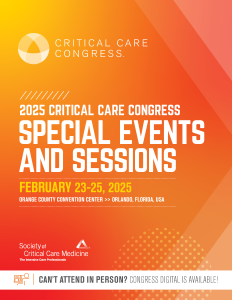Epidemiology - Outcomes
Research Snapshot Theater: Epidemiology - Outcomes, Adult II
(328) Outpatient Bariatric Surgery and GLP-1 Agonists: A Case Study on the Complexities and Risks
Tuesday, February 25, 2025
8:45am - 9:45am Eastern Time
Location: Connections Central - RST 02

Jessen M. Burk, DO
Rome, Georgia, USA
- JT
Jeffrey Talbot, MD
Dr.
AdventHealth Redmond, United States
First Author(s)
Co-Author(s)
Introduction: Obesity is a chronic disease with global health and economic impacts. Glucagon-like peptide-1 (GLP-1) agonists are popular despite limited studies on side effects and unclear timing for discontinuation before surgery. For many patients, medical therapies alone are inadequate, necessitating bariatric surgery. These surgeries shifted from inpatient to outpatient settings and subsequent studies have yield mixed results regarding adverse events. This case highlights the need for research on these outcomes and side effects of GIP/GLP-1 medications, including optimal discontinuation timing prior to surgery.
Description: A 45-year-old female with a history of obstructive sleep apnea, insulin-dependent type 2 diabetes, and obesity on Tirzepatide presented 2 days after an outpatient laparoscopic Roux-en-Y gastric bypass with emesis, nausea, and shortness of breath. CT ruled out pulmonary embolism but showed infiltrates, consistent with aspiration pneumonia. Upper GI series ruled out bowel obstruction. She was treated for aspiration pneumonia and developed mild ARDS. She required high oxygen and received lasix, with improvement. By discharge, she was on room air and instructed to resume her bariatric diet. Despite counseling, she continued Tirzepatide. Three days post-discharge, she returned after a cardiac arrest secondary to respiratory arrest caused by aspiration. She was intubated and underwent 40 minutes of ACLS before return of spontaneous circulation. Bronchoscopy revealed food in lungs. Hypothermia protocol was initiated. Initial CT indicated cerebral edema, raising concern for hypoxic brain injury. Despite aggressive treatment, no neurologic improvement was made, leading to the decision for compassionate extubation and organ procurement.
Discussion: The most common acute complications of bariatric surgery include peritonitis, bleeding, anastomosis leaks, and bowel obstruction. Aspiration is a rare, occurring in about 0.2% of cases. Studies suggest GLP-1 agonists may increase aspiration risk perioperatively. This is a case of a 45-year-old who underwent outpatient surgery, continued Tirzepatide, and ultimately had a bad outcome. This case emphasizes the need for further research on outpatient gastric bypass risks and the peri/postoperative effects of GLP-1 and GIP/GLP-1 receptor agonists.
Description: A 45-year-old female with a history of obstructive sleep apnea, insulin-dependent type 2 diabetes, and obesity on Tirzepatide presented 2 days after an outpatient laparoscopic Roux-en-Y gastric bypass with emesis, nausea, and shortness of breath. CT ruled out pulmonary embolism but showed infiltrates, consistent with aspiration pneumonia. Upper GI series ruled out bowel obstruction. She was treated for aspiration pneumonia and developed mild ARDS. She required high oxygen and received lasix, with improvement. By discharge, she was on room air and instructed to resume her bariatric diet. Despite counseling, she continued Tirzepatide. Three days post-discharge, she returned after a cardiac arrest secondary to respiratory arrest caused by aspiration. She was intubated and underwent 40 minutes of ACLS before return of spontaneous circulation. Bronchoscopy revealed food in lungs. Hypothermia protocol was initiated. Initial CT indicated cerebral edema, raising concern for hypoxic brain injury. Despite aggressive treatment, no neurologic improvement was made, leading to the decision for compassionate extubation and organ procurement.
Discussion: The most common acute complications of bariatric surgery include peritonitis, bleeding, anastomosis leaks, and bowel obstruction. Aspiration is a rare, occurring in about 0.2% of cases. Studies suggest GLP-1 agonists may increase aspiration risk perioperatively. This is a case of a 45-year-old who underwent outpatient surgery, continued Tirzepatide, and ultimately had a bad outcome. This case emphasizes the need for further research on outpatient gastric bypass risks and the peri/postoperative effects of GLP-1 and GIP/GLP-1 receptor agonists.

